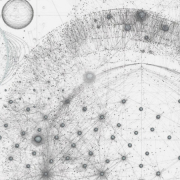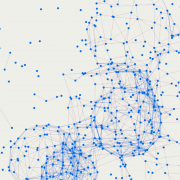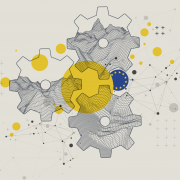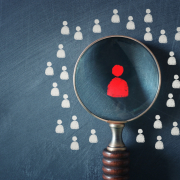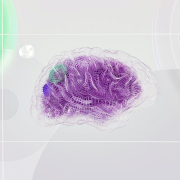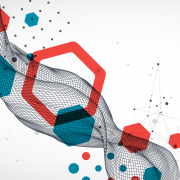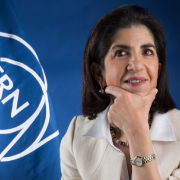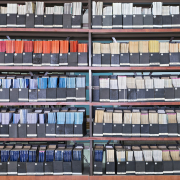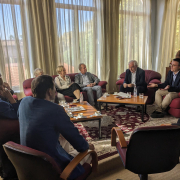Nominations Open for 2025 Breakthrough Prize in Fundamental Physics, Life Science and Mathematics
In collaboration with ALLEA, the Breakthrough Prize is releasing the call for nominations for the 2025 awards in fundamental physics, life sciences, and mathematics. This prestigious international recognition celebrates groundbreaking research and advancements in these fields. ALLEA warmly invites members of the European scientific community to participate actively by nominating individuals and teams for these esteemed awards. This is an opportunity to spotlight the outstanding contributions of European scientists on the global stage, emphasising their vital role in shaping the landscape of research worldwide.
Press release, The Breakthrough Prize, 9 January 2024
The public nomination period for the 2025 Breakthrough Prizes in Fundamental Physics, Life Sciences and Mathematics is now open. Nominations can be submitted online today through 1 April 2024. While self-nominations are prohibited, anyone may nominate another person. The nomination forms and rules are available at breakthroughprize.org.
For the 13th year, the Breakthrough Prize, recognised as the world’s largest science prize, will honour top scientists, handing out three prizes in Life Sciences, one in Fundamental Physics and one in Mathematics. Each prize comes with a $3 million award. In addition, six New Horizons Prizes, each for $100,000, will be available to promising early-career researchers in the fields of Physics and Mathematics. Nominations will also be taken for the Maryam Mirzakhani New Frontiers Prize, an annual $50,000 award presented to early-career women mathematicians who have completed their PhDs within the previous two years.
The Breakthrough Prize, dubbed ‘The Oscars of Science,’ hosts an annual globally broadcast gala awards ceremony to celebrate the laureates’ achievements and to foster broad popular support for scientific endeavours and inspire the next generation of scientists. The cohort of 2024 laureates was announced in September 2023.
For the eighth year, the Breakthrough Prize will partner with two prestigious institutions – the European Federation of Academies of Sciences and Humanities (ALLEA) and ResearchGate – to directly engage with researchers and the science community.
ALLEA brings together more than 50 academies from over 40 countries, with members leading scholarly enquiry across all fields of the natural sciences, social sciences, and humanities.
ResearchGate is the professional network for researchers. Over 20 million researchers use researchgate.net to share and discover research, build their networks, and advance their careers. Based in Berlin, ResearchGate was founded in 2008. Its mission is to connect the world of science and make research open to all. ResearchGate members are encouraged to nominate their peers for the 2025 prizes in Fundamental Physics, Life Sciences, and Mathematics.
Selection Committees are composed of previous Breakthrough Prize laureates, who select the winners from the list of candidates generated during the nomination period.
Breakthrough Prize in Fundamental Physics
One 2025 Breakthrough Prize in Fundamental Physics ($3 million) will recognize an individual or individuals who have made profound contributions to human knowledge. It is open to theoretical and experimental physicists. The prize can be shared among any number of scientists. Nominations are also open for the New Horizons in Physics Prize, which will include up to three $100,000 awards for early-career researchers who have already produced important work in their fields.
The Selection Committee for the 2025 physics prizes includes: Eric Adelberger, Nima Arkani-Hamed, Charles H. Bennett, Charles L. Bennett, John Cardy, Sheperd Doeleman, Michael Green, Jens Gundlach, Alan Guth, Blayne Heckel, Joseph Incandela, Charles Kane, Hidetoshi Katori, Alexei Kitaev, Andrei Linde, Arthur McDonald, Juan Maldacena, Eugene Mele, Lyman Page, Saul Perlmutter, Alexander Polyakov, Adam Riess, John Schwarz, Nathan Seiberg, Ashoke Sen, David Spergel, Andrew Strominger, Cumrun Vafa, Ewine F. van Dishoeck, Yifang Wang, Rainer Weiss, Edward Witten, and Jun Ye.
Breakthrough Prize in Life Sciences
Three 2025 Breakthrough Prizes in Life Sciences ($3 million each) will be awarded to individuals who have made transformative advances in comprehending living systems and extending human life. One of the prizes is designated for progress in understanding of Parkinson’s disease or other neurodegenerative disorders.
The Selection Committee for the 2025 Breakthrough Prize in Life Sciences includes: David Allis, James Allison, Victor Ambros, David Baker, Shankar Balasubramanian, Cornelia Bargmann, Alim Louis Benabid, Frank Bennett, David Botstein, Edward Boyden, Clifford P. Brangwynne, Lewis Cantley, Emmanuelle Charpentier, Zhijian “James” Chen, Joanne Chory, Don Cleveland, Hans Clevers, Karl Deisseroth, Titia de Lange, Mahlon DeLong, Jennifer Doudna, Catherine Dulac, Stephen Elledge, Napoleone Ferrara, Jeffrey Friedman, Thomas Gasser, Sabine Hadida, Michael Hall, John Hardy, Ulrich Hartl, Demis Hassabis, Helen Hobbs, Arthur Horwich, Anthony A. Hyman, John Jumper, David Julius, Carl June, Katalin Karikó, Jeffery W. Kelly, David Klenerman, Adrian Krainer, Eric Lander, Robert Langer, Virginia Lee, Richard Lifton, Dennis Lo, Pascal Mayer, Emmanuel Mignot, Kazutoshi Mori, Kim Nasmyth, Paul Negulescu, Harry Noller, Roeland Nusse, Yoshinori Ohsumi, Svante Pääbo, Gary Ruvkun, Michel Sadelain, Charles Sawyers, Ellen Sidransky, Andrew Singleton, Fredrick Van Goor, Alexander Varshavsky, Bert Vogelstein, Peter Walter, Robert Weinberg, Drew Weissman, Shinya Yamanaka, Masashi Yanagisawa, Richard Youle, Xiaowei Zhuang, and Huda Zoghbi.
Breakthrough Prize in Mathematics
One 2025 Breakthrough Prize in Mathematics ($3 million) will be awarded to an individual who has made outstanding contributions to the field of mathematics. Nominations are also open for the New Horizons in Mathematics Prize, which will include up to three $100,000 awards for early-career researchers who have already produced important work in their fields. In addition, up to three $50,000 Maryam Mirzakhani New Frontiers Prizes will be presented to early-career women mathematicians who have completed their PhDs within the previous two years (2019, 2020).
The Selection Committee for the 2025 mathematics prizes includes: Ian Agol, Simon Brendle, Alex Eskin, Simon Donaldson, Martin Hairer, Maxim Kontsevich, Christopher Hacon, Vincent Lafforgue, Jacob Lurie, James McKernan, Takuro Mochizuki, Daniel Spielman, Terence Tao, and Richard Taylor.
Information on the Breakthrough Prizes is available at breakthroughprize.org.
[End of press release]

